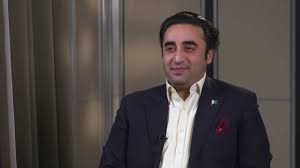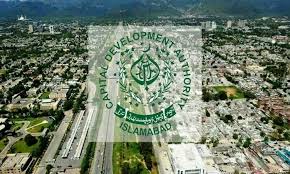Italy and Algeria cooperate on energy

Rome: Italy’s government, led by Prime Minister Giorgia Meloni, and Algeria’s authoritarian regime under President Abdelmajid Tebboune and army chief Said Chengriha are forging a new axis. Meloni’s highly anticipated and publicly promoted Algiers visit in January could indeed pave the way for a substantial strengthening of ties between the two states.
Whether this will really lead to a long-term win-win for the populations of both countries, however, as Meloni’s lofty rhetoric before and during her first bilateral foreign trip since taking office suggested, is more than uncertain.
Meloni first mentioned the so-called “Mattei Plan” for Africa during her inaugural speech as prime minister. According to the Fratelli d’Italia politician, the plan could become a “virtuous model of collaboration and growth between the EU and African nations”. Since her visit to Algiers and recent talks by Italian officials in Egypt, Libya and Tunisia, it has become somewhat clearer what was meant by this initially vague proposal: the serious expansion of Italy’s energy cooperation with its neighbours to the south.
Driven by Europe’s attempts to become less dependent on Moscow’s gas supplies following Russia’s invasion of Ukraine, Rome is now seeking to play a major role importing gas into the EU from Libya, Egypt and especially Algeria.
Gas power station in Algeria: before the war, Russia supplied about 40 percent of Italy’s gas needs. Ever since, however, Algeria has become Italy’s foremost energy supplier, with more than 20 billion cubic metres of gas flowing from Algeria to Italy in 2022, more than twice as much as in the previous year. If Meloni and the chairman of the Italian energy multinational ENI, Claudio Descalzi, have their way, this figure could rise to more than 36 billion cubic metres in years to come
Before the war, Russia supplied about 40 percent of Italy’s gas needs. Ever since, however, Algeria has become Italy’s foremost energy supplier, with more than 20 billion cubic metres of gas flowing from Algeria to Italy in 2022, more than twice as much as in the previous year. If Meloni and the chairman of the Italian energy multinational ENI, Claudio Descalzi, have their way, this figure could rise to more than 36 billion cubic metres in years to come.
As part of her Algeria trip, Meloni made a symbolic visit to a park named after the founder of ENI, Enrico Mattei, near Algiers city centre, while ENI boss Descalzi – “the chief architect of Italy’s ongoing pivot from Russian gas to Algerian gas”, as France24 puts it – who travelled to Algiers alongside Meloni, signed two “strategic” gas production agreements with Toufik Hakkar, director of Algeria’s state-owned energy company Sonatrach.
Although Meloni likes to present herself as the driving force behind developing the Algerian-Italian axis’ strengthening, Italy’s gas rush in Algeria was initiated by her predecessor Mario Draghi. The doubling of gas deliveries from Algeria was agreed upon in 2022 while he was still in office. Meloni is now going one step further. She intends turning Italy into a distribution hub for supplying gas to central Europe – transit fees for onward transmissions to the north would be very welcome in Italy’s straitened economic circumstances. To this end, not only are existing pipeline capacities to be exhausted and expanded, but Italy’s liquid gas industry is also to be significantly developed. Rome is already negotiating additional supplies of liquid gas from countries like Egypt.
Italy’s right-wing populist prime minister, Giorgia Meloni, with Libyan Prime Minister Abdul Hamid Dbeibah: driven by Europe’s attempts to become less dependent on Moscow’s gas supplies following Russia’s invasion of Ukraine, Rome is now seeking to play a major role importing gas into the EU from North Africa. Meloni intends to turn Italy into a distribution hub for supplying gas to central Europe – transit fees for onward transmissions to the north would be very welcomed in Italy’s straitened economic circumstances.
Meanwhile, Rome’s energy policy plans have been well-received in Algiers. “We want Italy to become a European hub for Algerian gas, a hub for other EU countries,” the Algerian ambassador in Rome, Abdelkrim Touahria, told Italian newspaper Il Messaggero prior to Meloni’s Algeria trip.
Algiers is looking to expand its position as a gas supplier, while also becoming a transit country for gas from West Africa. To this end, a 4,200 kilometre-long gas pipeline project from Nigeria to Algeria’s Mediterranean coast, first presented to the public in 2009 but neglected for years, is now being revived in order to turn Algeria into a transit hub for hydrocarbons similar to Italy.
The transit fees generated by such a project would also be more than welcome in Algeria. The country has been stuck in an economic crisis since world market prices for crude oil and gas plummeted between 2014 and 2020. The latter forced Algeria to disburse a substantial part of its hard currency reserves, while maintaining a severe budget deficit.
Investment in the energy sector has failed to materialise, due in part to Algiers’ protectionist economic policies of the past decade, which actively discouraged foreign investment in the energy sector. The industry’s infrastructure is considered outdated and needs modernisation, while new oil and gas fields await development.
This is one reason Algeria was unable to step in quickly and replace Russian exports to Europe following the onset of the Ukraine war. Doubling supplies to Italy was only possible because Algeria suspended its gas deliveries to Spain after Madrid sided with the occupying force in the conflict over the Morocco-occupied Western Sahara – an unacceptable affront to Algiers. Ever since, two gas pipelines connecting Algeria’s distribution network with Spain have been shut down.
Algeria stands to benefit economically and geopolitically from the Ukraine war by presenting itself as an alternative to Russia. Algiers is not only hoping for additional gas revenues, but hopes to become one of the EU’s essential energy suppliers. This would give the Algerian authorities effective leverage in any future disagreements with Europe.
Buying social peace with more revenue: during the Hirak uprising of 2019, Algerians protested against arbitrary state rule and repression. By expanding the gas industry and intensifying the exploitation of other raw materials, sooner or later Algeria’s government is likely to raise substantial additional revenue. This will allow the authoritarian regime to increase its social spending and subsidies on food – as it did back in the 2000s under former President Abdelaziz Bouteflika, who was toppled by the 2019 Hirak uprising – and thus once again, buy off a fragile social peace, writes Sofian Naceur. This does not, however, offer a long-term solution to the country’s structural problems
Plans also exist to cooperate with U.S. companies in the shale gas sector – despite the fierce reprisals by Algerian authorities against anti-shale gas protesters in the south of the country. For years, U.S. companies have been unwilling to invest the region’s risky oil and gas sector, preferring instead to focus on the booming shale gas industry in the United States. Now, however, companies from across the Atlantic have begun pushing back into the markets, in Algeria and elsewhere.
As the Wall Street Journal reported in February, U.S. energy giant Chevron is due to seal a new exploration deal with Algiers in the shale gas sector, while U.S. firm Occidental purchased shares of a conventional gas project in southern Algeria back in 2022.
Seeking new revenue from the export of raw material and commodities, Algeria is not only betting on the energy sector, but is also massively expanding its production capabilities of marble, zinc, gold and phosphate. As recently as 2022, Algerian and Chinese officials signed off on a phosphate extraction project with a total volume of seven billion U.S. dollars. The deal is the largest ever in the mining and fertilizer production sector in Algeria and is expected to increase production from the current three million tonnes of phosphate to six million per year.
By expanding the gas industry and intensifying the exploitation of other raw materials, sooner or later Algeria’s government is likely to raise substantial additional revenue. This will allow the authoritarian regime to increase its social spending and subsidies on food – as it did back in the 2000s under former President Abdelaziz Bouteflika, who was toppled by the 2019 Hirak uprising – and thus, once again, buy off a fragile social peace.
This rentier approach will do little to counter either the structural weaknesses of the Algerian economy or the country’s rampant unemployment. Algeria’s pro-revenue policies with no doubt stabilise the country macroeconomically, but they will also consolidate the role of the population as mere supplicants dependent on social policy initiatives organised by the regime to survive. The regime’s current plans are in crass contrast to economic policies aimed at job creation.
Meanwhile, the regime is well aware of its heightened influence in Europe with regard to energy security and therefore has little to fear in terms of significant European criticism of its human rights violations. The recent dissolution of the Algerian human rights league LADDH, the youth association RAJ and the opposition party MDS, as well as the imprisonment of government critic and journalist Ihsane El-Kadi, make prospects for an easing of the human rights situation in Algeria rather bleak





